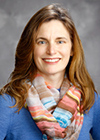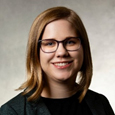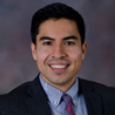Featured Speakers
Welcome and Keynote Address
Thursday, May 30, 9:15 a.m.

Tamara Kolda, Sandia National Laboratories
Kolda is a distinguished member of the technical staff at Sandia National Laboratories. She works at the intersection of computational science and data analysis with work in multilinear algebra and tensor decompositions, network science, data mining, optimization, nonlinear solvers, parallel computing, and the design of scientific software. She is a distinguished scientist of the Association for Computing Machinery, fellow of the Society for Industrial and Applied Mathematics (SIAM), and founding editor-in-chief of the new SIAM Journal on Mathematics of Data Science.
SDSS Banquet Keynote
Thursday, May 30, 7:00 p.m.

Joel Grus, Allen Institute
Grus is a research engineer at the Allen Institute for Artificial Intelligence, where he builds deep-learning tools for natural language processing researchers and does stand-up comedy at the company holiday party. He’s the author of the bestselling O’Reilly book Data Science from Scratch, whose second edition should be available by the time of the symposium. Previously, he worked as a software engineer at Google and as a data scientist at a variety of startups. Before that, he dropped out of math graduate school once and economics graduate school once. In his spare time, Grus writes viral blog posts about Fizz Buzz, speaks out against Jupyter notebooks, makes livecoding videos, and spends way too much time on Twitter. He lives in Seattle.
Friday Keynote Address
Friday, May 31, 8:30 a.m.

Fernando Pérez, University of California, Berkeley
Pérez is an assistant professor in statistics at UC Berkeley and a faculty scientist in the department of data science and technology at Lawrence Berkeley National Laboratory. After completing a PhD in particle physics at the University of Colorado at Boulder, his postdoctoral research in applied mathematics centered on the development of fast algorithms for the solution of partial differential equations. Today, his research focuses on creating tools for modern computational research and data science across domain disciplines, with an emphasis on high-level languages, interactive and literate computing, and reproducible research. He created IPython while a graduate student in 2001 and co-founded its successor, Project Jupyter. The Jupyter team collaborates openly to create the next generation of tools for human-driven computational exploration, data analysis, scientific insight, and education. Pérez is a National Academy of Sciences Kavli Frontiers of Science Fellow and a senior fellow and founding co-investigator of the Berkeley Institute for Data Science. He is a co-founder of the NumFOCUS Foundation and a member of the Python Software Foundation. He is also a recipient of the 2012 FSF Award for the Advancement of Free Software and 2017 ACM Software System Award.
Fireside Chat
Saturday, June 1, 8:30 a.m.
Closing Keynote Address
Saturday, June 1, 4:00 p.m.

Daniela Witten, University of Washington
Witten’s research involves the development of statistical machine learning methods for high-dimensional data with applications to genomics, neuroscience, and other fields. She is particularly interested in unsupervised learning, with a focus on graphical modeling. Daniela is the recipient of a number of honors, including a National Institutes of Health Director’s Early Independence Award, a Sloan Research Fellowship, a National Science Foundation CAREER Award, a Simons Investigator Award in Mathematical Modeling of Living Systems, a David Byar Award, a Gertrude Cox Scholarship, and a National Defense Science and Engineering Graduate Research Fellowship. Her work has been featured in the popular media, including in Forbes Magazine (three times) and Elle Magazine, on KUOW radio (Seattle’s local NPR affiliate station), and in a NOVA documentary. She was also a PopTech Science Fellow. Witten is a co-author of the popular textbook Introduction to Statistical Learning and was a member of the Institute of Medicine committee that released the report “Evolution of Translational Omics.” She completed a BS in math and biology with honors and distinction at Stanford University in 2005 and a PhD in statistics at Stanford University in 2010. Since 2018, Witten has been a professor of statistics and biostatistics at the University of Washington.




